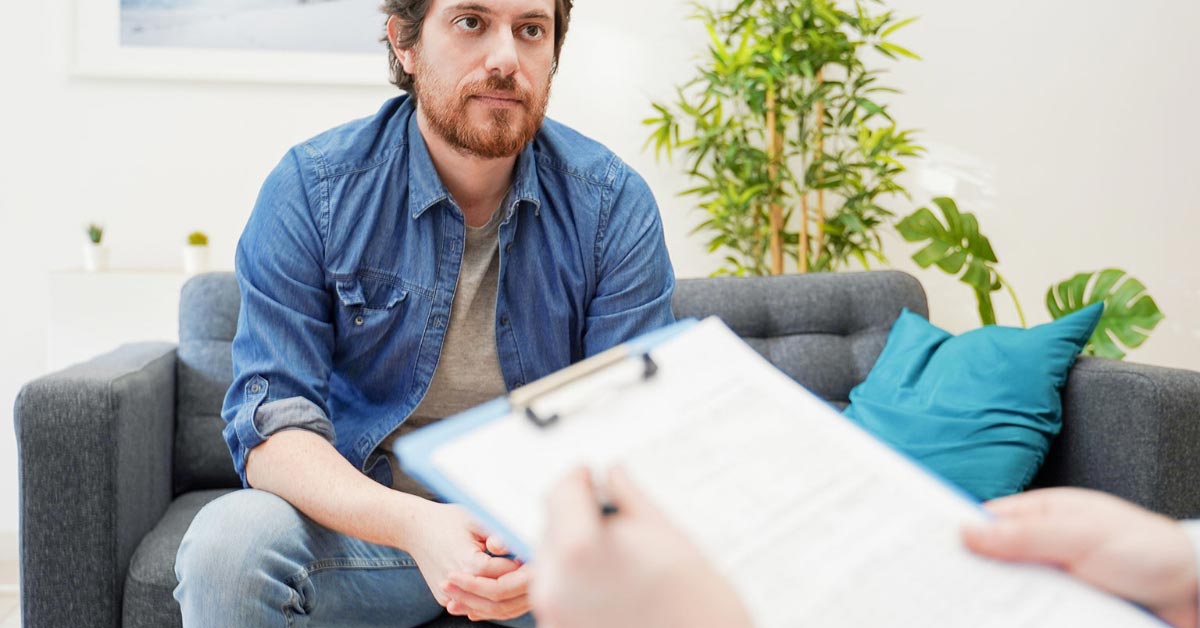In 2015, about 10% of the population of Massachusetts had a substance use disorder (SUD). Chronic SUDs can affect everyone, regardless of age—compulsive drug seeking creeps up on you, and when addiction takes hold, it can be disruptive, debilitating, and fatal. The opioid crisis marks a tragic period in our nation’s history. But the more people have access to life-saving education and treatment, the better our collective prospects. Accredited day programs are one way to access evidence-based treatment underpinned by peer-reviewed research and professional consensus. For starters, here’s what you need to know about Intensive Outpatient and Partial Hospitalization Programs.
What is an Addiction Treatment Continuum of Care
People with serious SUDs need at least a year of addiction treatment in Massachusetts, beginning with inpatient addiction treatment and ending with outpatient addiction treatment in Massachusetts. After that, there’s a shift to continuous 12-step group attendance. The care continuum offers appropriate interventions depending on where you are in your recovery journey. Without the right level of care, relapse becomes more likely.
For example, if you’ve just been through a medically managed withdrawal program, you need more support than if you’ve been sober for a year. Research shows that intensive outpatient programs in MA or PHP day treatment (level 2) in Massachusetts can be excellent alternatives to a round-the-clock residential rehab (level 3 or 4 treatment), especially when beds are hard to come by after a detox. IOPs and PHPs are also the next step after live-in rehab when you transition back to ‘normal life’ but still need significant aid. Regular outpatient services are a step-down level 1 treatment.
What is an Intensive Outpatient Program in Massachusetts?
IOPs are a powerful form of addiction treatment in MA if you have a mild to moderate SUD. For adults, intensive outpatient programs involve at least nine hours of therapy per week, and adolescents require at least six hours weekly. The hours can be spread over two to five days, and this schedule applies for a few months. Evening, after-school, and weekend sessions are offered for those with work, college, or family commitments. If the patient improves, they can move to Level 1 outpatient treatment with sessions once or twice a month.
What Happens in an IOP in Massachusetts?
IOPs begin with a customized treatment plan and comprise various services such as:
- group and individual counseling for substance misuse
- family therapy
- addiction education
- occupational and recreational therapy
- motivational interviewing
- vocational and housing resources
- referrals to mutual support groups and other care levels
IOPs focus on mental and physical health; patients may interact with doctors, counselors, psychologists, and social workers. You’ll learn relapse prevention strategies, including self-management and coping with triggers, and you’ll do so in an encouraging and understanding community setting. Counseling addresses psychosocial issues and the root causes of addiction, and Cognitive-Behavioral Therapy is a popular and recognized treatment model and talk therapy.
What is a Partial Hospitalization Program?
It’s not 24-hour care—partial hospitalization services entail about 20 hours of tailored day treatment weekly. Individuals in PHPs are at a vulnerable stage of recovery and must do the necessary mental work to make sobriety stick—this takes time and effort. PHPs offer interdisciplinary care, daily management and monitoring for better long-term outcomes, and emergency services. They’re particularly effective for individuals with dual diagnoses or co-occurring psychiatric or medical conditions. The structured programming in PHPs isn’t too different from what you’d find in an inpatient context. This structure is critical to keep lapses at bay.
IOPs and Medication-Assisted Treatment (MAT)
When you combine behavioral interventions with medication to assist with, for example, alcohol and opioid disorders, it’s known as MAT. Level 2 treatment can include post-detox MAT, and patients are assessed case-by-case to see if they’d be a good fit. Medications can have side effects or misuse and overdose potential, but they can also be transformative when used correctly. They take hazardous street drugs out of the picture, reduce cravings, and keep people engaged in treatment. With therapy and meds, your daily life can start feeling less chaotic, and you can lay the groundwork for a positive future. Doses drop over time; eventually, you won’t need maintenance drugs except for medical conditions, if relevant, and abstinence will be manageable.
Who can get the most out of an IOP?
If you’re looking for addiction treatment in MA, IOPs are more affordable than inpatient rehabs and are more readily covered by insurance carriers. For most patients, intensive day programs also have comparable outcomes to their 24/7 counterparts. They allow you to get help without leaving home for weeks, a considerable barrier to treatment for those with kids or other obligations. With access to stable housing and a living situation conducive to recovery, you’re halfway to being a strong candidate for intensive day treatment. A solid social support network is a plus; motivation to work on recovery is essential because IOPs don’t offer constant supervision. IOPs are suitable for people who aren’t a danger to themselves or others and don’t currently require detoxes.
Virtual Addiction Treatment
One of the advantages of day treatment is you can do it from anywhere that has internet. Telehealth services allow people who live far away from rehabs to access the same experts via secure and private online channels. Virtual IOPs foster a similar sense of community and give you the tools you need to kick destructive habits.
Northstar Recovery Center Is Here For You
If you or someone you care about needs to break out of the cycle of addiction, our team of qualified professionals in Southborough, MA, can assist. Contact us for more information about addiction treatment, telehealth services, and insurance coverage through MassHealth or another provider. There’s reason to hope, whether you’re struggling with benzos, stimulants, opioids, or drinking, but you have to take that first step.
Day Treatment Program in MA
The Day Treatment in Massachusetts, also referred to as PHP (Partial Hospitalization Program) or IOP (Intensive Outpatient Program), is the highest level of care offered at Northstar Recovery Center. This addiction treatment option encompasses comprehensive clinical care and behavioral therapies. In the initial stages of recovery from addiction, it's crucial to have robust support to navigate both physical and emotional challenges. Our dedicated team at Northstar Recovery Center, located in Southborough, MA, and West Springfield, MA, is committed to assisting you in establishing a solid foundation for a lifelong recovery from addiction to drugs and alcohol. Clients typically visit our addiction treatment center in Massachusetts each weekday for several hours, engaging in counseling sessions and other necessary interventions. This approach ensures a balanced and effective recovery process, tailored to individual needs within the framework of Day Treatment.
Individual, Group, and Family Counseling in Massachusetts
Addiction thrives in isolation, which is why group counseling sessions are a foundational part of our addiction treatment plans. In group sessions, you’ll gain perspective on your struggles with substance abuse and can connect with others who understand your experiences. Family counseling can help your loved ones understand the disease of addiction, navigate conflict and build healthier relationships. In individual counseling sessions, you’ll be able to work through personal issues like past trauma with the help of an experienced therapist.



